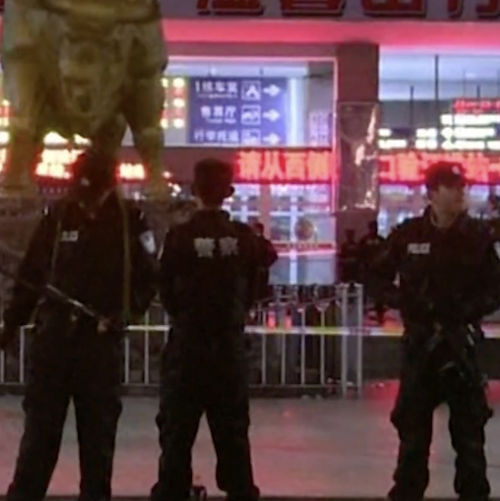
Why have the Uyghurs become a target of “what many are calling a genocide in China”? The NPR history podcast Throughline of May 31, 2021, hosted by Rund Abdelfatah and Ramtin Arablouei, considers this question.
One subject discussed is how, post 9/11, many Chinese are being persuaded that Uyghurs as such are terrorists or likely terrorists. Another is how “terrorism, extremism, and separatism” are being treated by the Chinese Communist Party as comparable evils.
ARABLOUEI: The CCP started a campaign in Xinjiang against what they called the three evils.
AYUP: Terrorism, extremism and separatism.
ARABLOUEI: Terrorism, extremism and separatism. That last one, separatism, it also included a subtle but important twist.
AYUP: Ideological separatism.
ARABLOUEI: Ideological separatism. That allowed the government to cast any acts of Uyghur cultural expression as separatism. This meant there would be…
AYUP: Ideological surveillance. For example, restrict books about Uyghur history and Uyghur culture and restrict the songs and expression [of] Uyghur culture and Uyghur language.
Contrary to the implication of NPR’s wording (“what many are calling a genocide”), whether the genocide of the Uyghurs is properly designated a genocide is not legitimately in doubt. Merriam-Webster defines genocide as “the deliberate and systematic destruction of a racial, political, or cultural group.” Deliberate and systematic pursuit of this destruction is genocidal even if a targeted people or their culture is not completely wiped out.
Participant Sean Roberts says that he calls what the Chinazis have been doing the Uyghurs cultural genocide “because they essentially are trying to sever this group’s attachment to the territory so the state can develop this area. And breaking the solidarity of the people and erasing their culture. So that, in effect, they’re destroying the people as we know them.”





